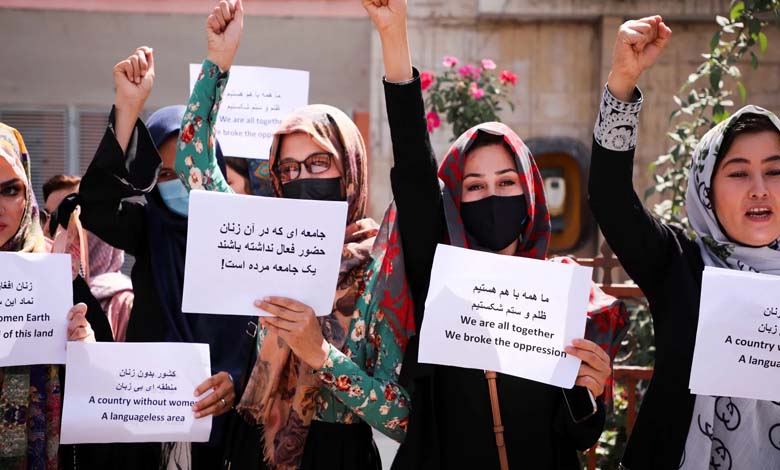Due to the Decision that a Woman’s Voice is ‘Awra’… Many Afghan Women Lose Their Sources of Income

Many women in Afghanistan have lost their sources of income, especially those who turned to YouTube, following a decision by the Ministry for the Promotion of Virtue and Prevention of Vice, declaring that a woman’s voice is ‘awra’ (a part of the body that should not be exposed) and should not be heard while speaking or reading aloud, even at home.
-
The Latest: Banning Voices… The Taliban’s Criminal Record Against Afghan Women
-
The United Nations: Afghan women under Taliban rule face the world’s most severe oppression
Last month, the Taliban officially enacted a series of moral laws in Afghanistan, including a requirement for women to cover themselves from head to toe in public places and a ban on speaking outside their homes. This has sparked renewed international outrage, with calls for the Taliban to revoke these laws immediately.
According to the Ministry for the Promotion of Virtue and Prevention of Vice, which the Taliban established after seizing power in 2021, women should not be heard speaking or reading aloud, even in their homes.
-
Taliban – Repressive new resolutions target Afghan women
-
Afghanistan: Secret schools a way for Afghan women to get their right to education
According to the London-based newspaper “Al-Arab,” dozens of women who turned to YouTube as a source of income after the Taliban took power in 2021 and confined them to their homes, fear losing this outlet.
Afghan women’s rights activist Malouda Tawana said that these recent restrictions not only harm women’s economic status but also their mental health. She told us via WhatsApp that “the new restrictions prevent these YouTube users from doing their work, leaving them to live like dolls in a silent corner.”
-
Afghan women in the Taliban era learn ”behind a curtain”
-
Taliban Prevent Women’s Education… Crimes that Perpetuate Extremism and Terrorism in Afghanistan
She also stated, quoting “Al-Arab,” that technology and social media have helped women protest, express themselves, and share the “Taliban’s atrocities” with the world. She warned that reporting events without their voices would be impossible. “The world must pay attention to the plight of the Afghan people, especially women,” she added.
The new rules do not directly target YouTube or other social media platforms, but content creators say their ability to create videos in public and at home is diminishing.
-
Similar violations against women in Iran, Afghanistan, and Yemen – Details
-
After Taliban banned women from working for the UN, the European Union links its aid to Afghanistan
The Taliban have already banned girls from secondary education, prevented women from attending universities, barred them from most jobs, and restricted their freedom of movement, reinstating the harsh restrictions they imposed during their first rule in 1996.
The Taliban‘s restrictions on women and freedom of expression have drawn sharp criticism from human rights groups and many foreign governments.
-
BBC: Taliban prevent women from working at the United Nations and threaten to continue relief operations in Afghanistan
-
Women’s and girls’ lives in Afghanistan destroyed : Human rights activist reveals
The laws give the Ministry for the Promotion of Virtue and Prevention of Vice the authority to launch campaigns on personal behavior and to impose penalties, such as warnings or arrests, in cases of violations.
Article 13 stipulates that women must cover their bodies in public and cover their faces to avoid temptation and seducing others. Women are required to wear loose, long clothing that is neither transparent nor form-fitting.
-
Divorce laws warn of brutal crimes.. How does Taliban’s hatred for women threaten the lives of Afghans?
-
Afghanistan: Taliban continue violations against women by banning girls from taking university entrance examination
The Taliban have stated that a Muslim woman must cover herself in front of both men and women to avoid temptation. A woman’s voice is considered private and should not be heard in singing, reciting poetry, or reading aloud in public.
Women are also prohibited from looking at men to whom they are not related by blood or marriage, and the same applies to men.












